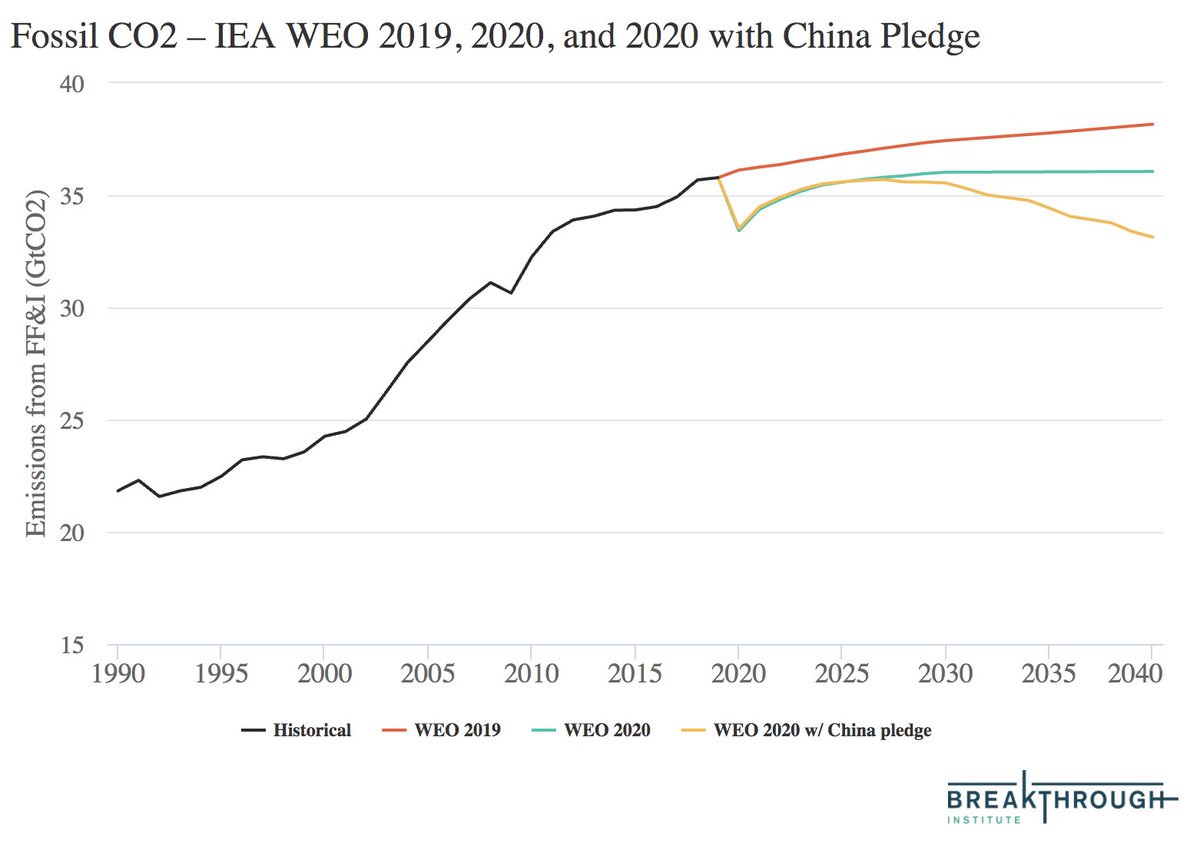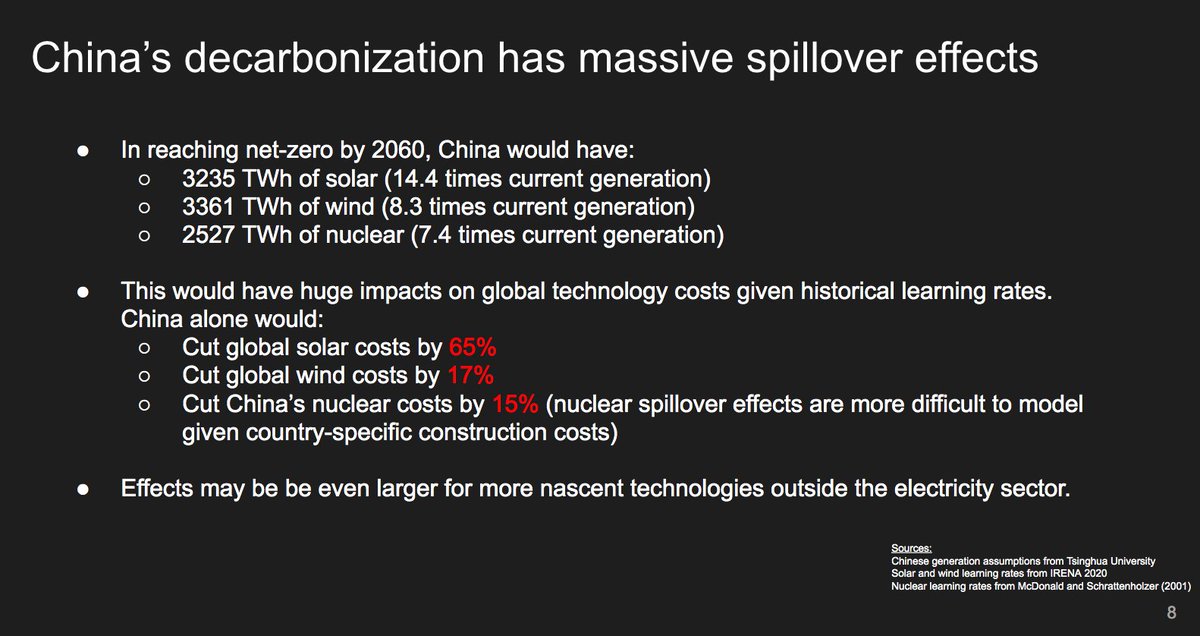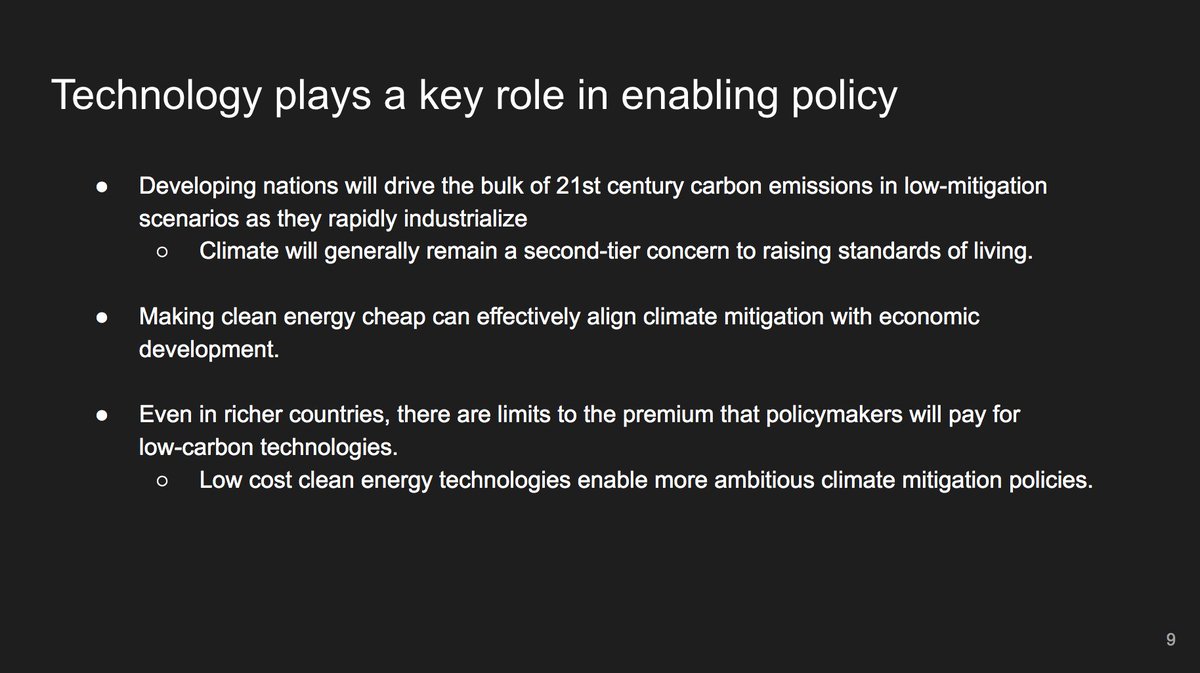One of the under-appreciated aspects of the Chinese 2060 net-zero target is the massive spillover effects it would have on the rest of the world. An economy as large as China's mobilizing to decarbonize the entire economy would substantially drive down clean energy costs. 1/6
The recent IEA WEO 2020 predicts that global CO2 emissions will plateau around 2019 levels, but does not include recent net-zero targets. Including China's (via the Tsinghua University analysis) would lead to global emissions declining in coming years: 2/6
If China were to decarbonize while the rest of the world did nothing, it alone would drive global solar prices down by 65% and wind prices down by 17% assuming historical learning rates continue. These effects will be even more pronounced for nascent tech outside power sector 3/6
Nuclear prices would drop as well as China increases its fleet 7-fold, though spillover there is a bit harder to generalize given the nature of country and site-specific construction costs (vs more assembly line production for renewables). Advanced nuclear would also benefit. 4/6
Driving down the costs of clean energy through rapid deployment is critically important, as in many ways technology enables policy. This is particularly true in rapidly industrializing countries where climate is likely to be – at least in the short term – a secondary concern: 5/6
This quick thread is based on a more detailed talk I gave a talk yesterday to the Institute of Atmospheric Physics, Chinese Academy of Sciences (thanks for the opportunity @Lijing_Cheng!). 6/6

 Read on Twitter
Read on Twitter




